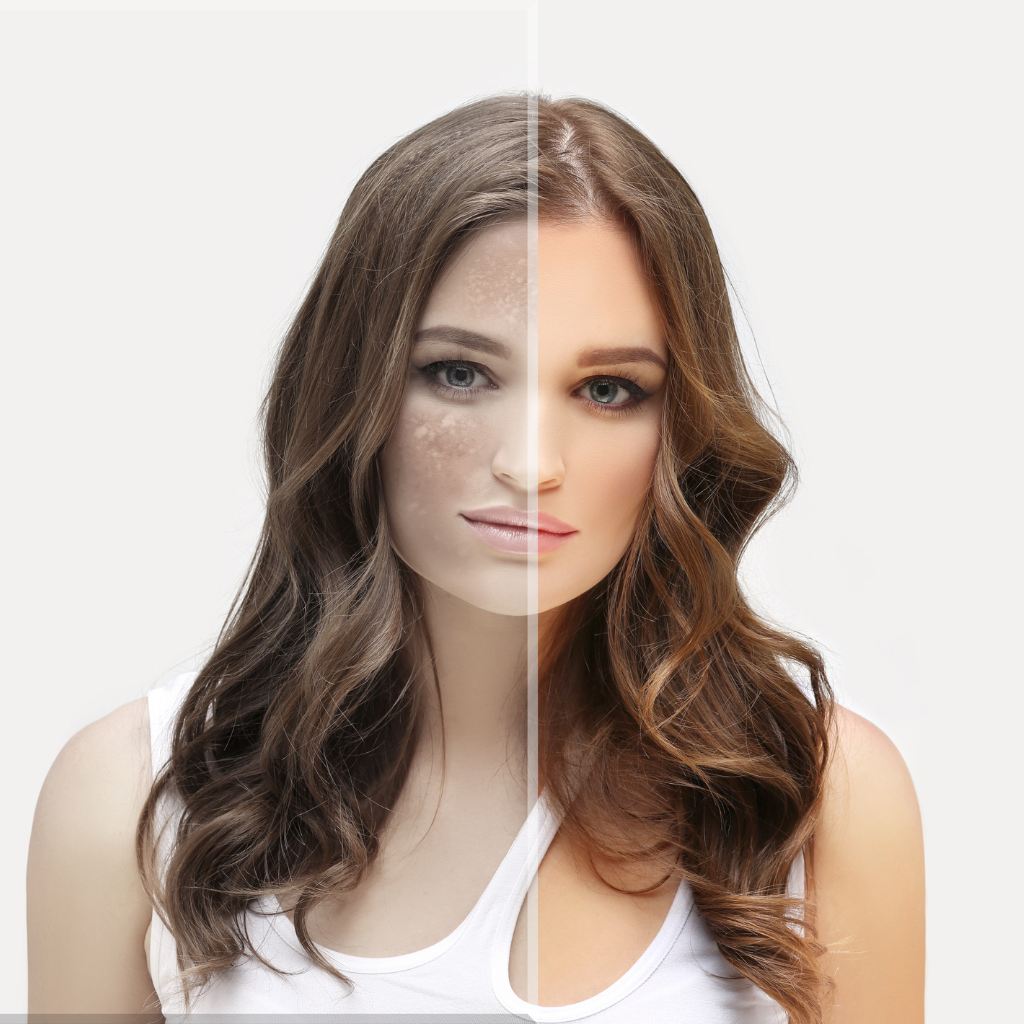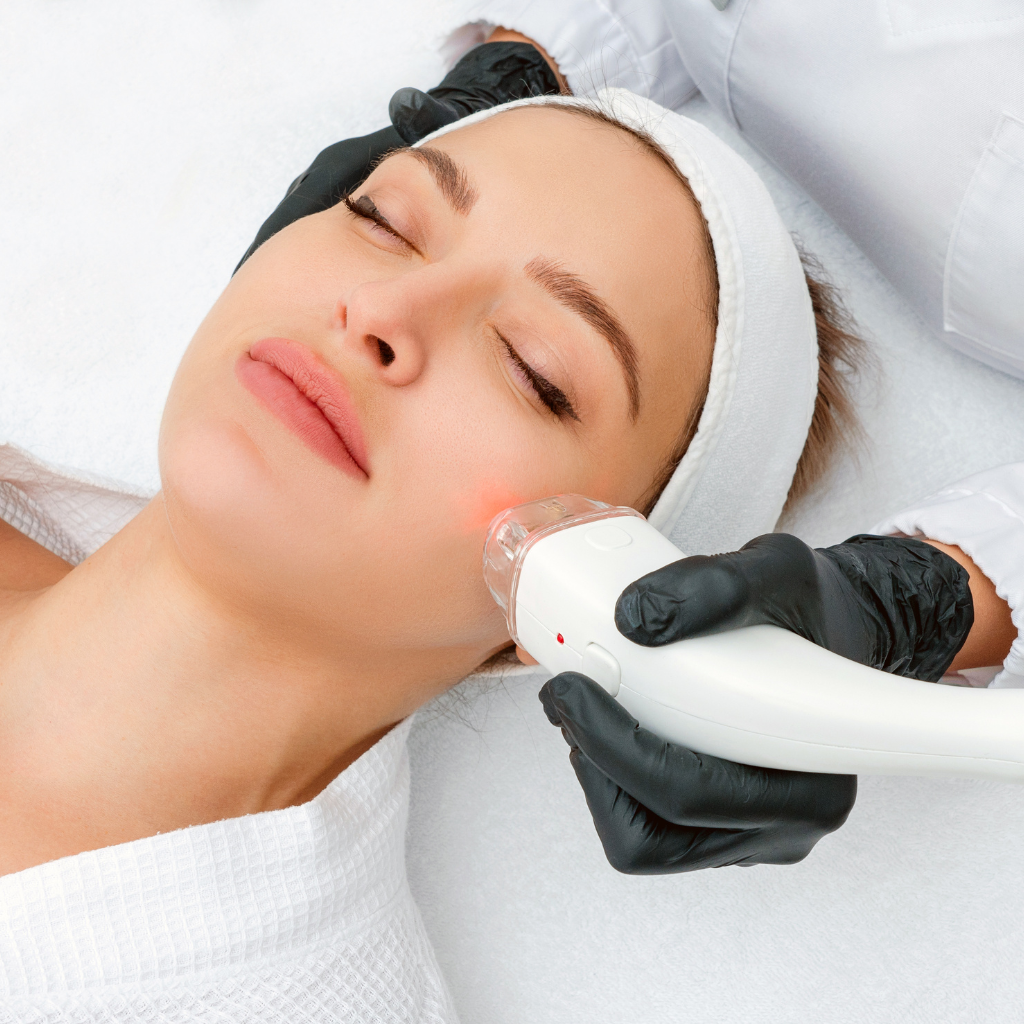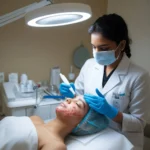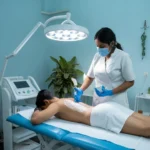Is Laser Skin Whitening Permanent? A Look At Lasting Complexion Solutions
- Home
- skin-rejuvenation
- is laser skin whitening permanent

Many folks crave a smooth and uniform complexion because it can lift self-esteem and encourage healthier skin habits. Laser skin whitening is one option people explore when typical creams or lotions fail to deliver. Its focused light beams reduce extra pigment cells buried in deeper layers. The idea is to get a clearer, brighter look that lasts. While results can endure, many wonder if they truly hold forever. This blog will help explain how laser procedures target melanin, how people respond long-term, and why lifestyle choices affect outcomes. Getting the right facts matters before starting any skin-lightening journey.
What Is Laser Skin Whitening Treatment?
Laser skin whitening treatment uses light energy to reduce areas of darker pigment on the skin. It pinpoints clumps of melanin that might cause uneven patches. When performed by experienced professionals, it can lighten acne scars or other spots. However, each result is different, and skin type also influences outcomes.
Can Laser Whiten Skin and Improve Acne Scars?
Laser therapy involves intense beams that aim at clusters of melanin under the surface. These beams break up extra pigment, which fades as the skin cells heal. This process can help correct darker spots from acne scars that linger after breakouts. It also addresses overall skin pigmentation issues. When people ask, “Can laser whiten skin,” the short answer is yes, but it does more than just lighten. It can stimulate certain repair responses that make skin smoother. Despite that benefit, it usually targets pigmentation more than deep scarring. Other treatments, such as microneedling or specialized resurfacing, might be combined if textured scars are also a problem.
Some folks see helping results in two or three sessions, although deeper discoloration often needs more. If people have older acne scars that show as dark marks, laser interventions may improve their look by polishing the top surface. They can help with mild textural issues, but raised or pitted scars might need different techniques. Doctors typically evaluate each person’s skin to see if laser therapy is suitable. Good sun habits protect new gains because extra sun exposure can spark new dark spots to form. Pfollow up visits are sometimes needed to maintain this brightened appearance over time.
Additionally, certain skin types respond better. Darker skin tones often need gentler settings or different laser devices to avoid extra inflammation. Talking with a dermatologist ensures the laser device matches your complexion. In short, laser treatments can lighten acne scars, help reduce stubborn patches, and possibly heighten your skin’s clarity overall.
Does Laser Skin Whitening Work for More Even Skin Tone?
When discussing laser skin whitening work, people often wonder how it compares to over-the-counter creams or home remedies. Lasers dive deeper than creams alone and may bring more noticeable improvement to uneven skin tone. They break up melanin clumps that cause blotchy complexions. Over a series of sessions, the color tends to blend more evenly as old cells shed and newer cells rise.
While lasers are powerful, it’s important to be cautious. Individuals with sensitive or reactive skin should talk with experts about any risks. In some cases, mild redness or swelling might happen, yet these effects typically vanish within days. As with any whitening treatment, results differ from person to person. Age, genes, hormones, and lifestyle habits all influence how well the skin responds. Laser energy is also sometimes combined with gentle chemical agents or alpha hydroxy acids to boost the effect. This combination might give a smoother finish that can bring a more even skin tone.
Since lasers target color irregularities, they’re often recommended for stubborn spots that lotions can’t fade. Yet, consistent sunscreen use is key. Without sun protection, new discolorations may appear. A few professional sessions, spaced out for healing, help ensure the best outcome. Some people only need light enhancements, while others benefit from more sessions. The time and frequency vary based on how uneven the skin is and how the body heals.

Is Laser Skin Whitening Safe for Different Skin Tones?
Whenever someone asks, “Is laser skin whitening safe,” the answer lies in proper treatment planning and device choice according to a person’s pigment level. Dermatologists usually match individuals to the right laser system, adjusting the power to avoid unneeded damage. Among the devices are Q-switched or Pico lasers, known to target melanin carefully.
People who have darker complexions might need slower approaches to reduce any chance of post-inflammatory hyperpigmentation. If the laser is too strong, the surrounding tissue can become irritated, leading to more spots. That’s why licensed specialists follow precise guidelines for each skin tone. They also consider health history, medications, and any previous scarring. A patch test might be done on a hidden area to check how the skin reacts. Most folks experience only mild stinging during the session, and post-care instructions help prevent complications. Gentle ointments or soothing solutions can calm temporary redness after treatment. In successful scenarios, a brightened look becomes visible over several weeks once the body’s natural healing systems flush out the broken pigment cells. Each step is geared toward safety and minimal risk.
Is Laser Treatment for Skin Whitening Permanent?
Those searching online often type, “Is laser treatment for skin whitening permanent,” hoping for a direct yes or no. The reality is more nuanced. Results can last a long time if you shield yourself from the sun and keep a steady skincare routine. But nothing halts new spots from forming later.
Which Laser Treatment Is Good for Skin Whitening and Lasting Results?
Different lasers do different tasks. Some treat shallow pigment, while others dive further to clear deeper clusters. IPL, Q-switched Nd: YAG, and fractional lasers all offer unique approaches. Which laser treatment is good for skin whitening? That depends on how severe your discoloration is and whether other conditions, such as melasma, are present. A dermatologist will recommend the best match. Sometimes, a fractional laser addresses both texture issues and pigment, while Q-switched devices might focus on stubborn patches. People often combine these with good skincare habits for maximum benefit.
Though they can produce lasting results, patients need to remember that aging, sun exposure, hormonal changes, and genetics can still trigger fresh spotting or dullness later. So, while you might enjoy a brighter complexion for many months or even years, periodic maintenance sessions could be helpful. It’s not always about chasing 100 percent permanence but about understanding the skin’s ongoing cycles. Regular check-ins with a dermatologist can keep your new glow going strong.
Along with laser skin whitening treatment, certain lifestyle measures help preserve the effects. Sunscreen with a high SPF blocks ultraviolet rays, which are a key cause of uneven pigment. Drinking plenty of water and eating healthy foods can also encourage steady skin renewal. Taking these steps makes a big difference in how long your results last. It’s a bit like caring for a new plant. Once you invest in it, you still have to water it properly for it to keep thriving.
Exploring Permanent Skin Whitening Treatment Options
Many people think “permanent skin whitening treatment” exists and will erase all future problems. In truth, no therapy guarantees total permanence because new pigment cycles occur throughout life. What lasers can do is remove much of the current excess melanin, delivering a fresh slate. However, external forces like sun rays keep fueling new pigment production.
For folks with chronic hyperpigmentation or stubborn melasma, multiple sessions of this skin lightening treatment might tame the issue, yet slight recurrences can pop up, especially if protective steps (like hats and sunscreen) are overlooked. Some clinics may call it permanent if the targeted spots don’t return, but that doesn’t stop new discolorations from developing elsewhere. When weighed against bleaching creams or other methods, lasers often hold up well in terms of durability. They also reduce reliance on daily creams that might be harsh or produce uneven bleaching. People might look into adjunct procedures, like chemical peels or microdermabrasion, for an extra boost. Each approach can be personalized per skin needs. With careful planning, the improvements can feel very long-lasting.
The concept of total permanence is tricky. Bodies change. Skin reacts to the environment. Even the best laser procedure needs responsible follow-up. Some see near-permanent results for certain freckles or dark patches. Others might need occasional touch-ups, especially if their skin tends to form new spots quickly. Realistic expectations and regular dermatologist check-ins offer the best outcomes. That’s how people keep a clear look over time.
Managing Skin Whitening Treatment Costs and Maintenance
Budget is usually a worry for anyone attempting to factor out the “cost of skin” brightening. Skin whitening treatment cost varies based on location, clinic expertise, and the severity of hyperpigmentation. Some individuals need three or four sessions, while others need more. Each session has its fee. Reputable clinics often give detailed cost breakdowns, including potential touch-up fees.
Laser treatments may look expensive compared to a box of bleaching cream, but when you factor in the deeper and often longer-lasting results, many feel it’s worthwhile. Maintenance also plays into overall expenses. If new spots appear, you might want a short follow-up procedure. Some clinics offer packages bundling initial treatments with discounted maintenance rates. By planning and discussing the needed sessions, you can prepare financially.
Alternative whitening treatments, like mild chemical peels or alpha hydroxy acids, can complement laser therapy. They exfoliate and boost cell turnover so fresh, lighter cells come to the surface faster. That combination may cut down future sessions. Each layer of care defends against new pigment buildup and keeps your investment secure. Managing expectations, costs, and aftercare all factor into a better, longer-lasting outcome.
Effectiveness and Safety of Laser Skin Whitening Procedures
Many want to know if laser skin whitening laser treatment reliably reaches the goal of a brighter, clearer complexion without serious side effects. Safety largely hinges on the doctor’s skill and whether the chosen method suits your skin. Recovery times can vary, but mild redness is common.
Using Laser Skin for Whitening Treatments with Alpha Hydroxy Acids
In many clinics, a combination approach is standard. Specialists might recommend alpha hydroxy acids to help peel away dull layers before or after laser skin sessions. These gentle acids, like lactic or glycolic acid, refine texture and allow the laser to do its job more effectively, helping to brighten dull skin naturally. Each method alone can deliver improvements, but pairing them often speeds up results and helps the skin heal in a smoother, more uniform way.
Patients sometimes start with a mild peel regimen so that when the laser is used, it can better access underlying darker patches. This synergy might shorten the overall treatment timeline. People should avoid strong at-home scrubs or harsh chemicals during this process since overdoing exfoliation can trigger irritation. Instead, it’s better to follow a controlled plan designed by a skin specialist who knows how to shift the combination of peels and laser settings based on changing skin responses. The entire sequence is typically calibrated to reduce side effects while delivering a more even complexion. As the weeks progress, a gentle daily cleanser and moisturizer help lock in gains. It’s a multi-step plan that blends the best of both worlds for those seeking thorough whitening treatments without overstressing the skin.
Going forward, monthly or quarterly top-ups with alpha hydroxy acids keep clogged pores, sun damage, or dull patches at bay. This routine keeps the complexion vibrant over the long haul. People realize that synergy is key. Relying solely on a single solution may not always yield the strongest or safest outcome. Combining professional laser procedures with proven supportive treatments leads to a more stable and enhanced glow.
Skin Whitening Laser Treatment and Post-Care Tips
Skin whitening laser treatment can yield a brighter appearance when done properly, yet proper aftercare cannot be overlooked. Dermatologists often advise minimal sun exposure and daily sunscreen use to protect freshly treated areas. Without it, the newly revealed skin is prone to sun-induced darkening. Seeking shady spots, wearing wide-brimmed hats, or using umbrellas also defends sensitive skin.
Moisturizing lotions calm dry or tight feelings that may crop up in the days following a laser session. Drinking enough water aids in overall healing. Some might experience mild crusting if brown spots start to flake. In those cases, gentle cleansing is recommended. Picking or scratching can irritate. For best outcomes, alpha hydroxy acids or light nighttime retinoids might be incorporated later, helping cell turnover remain consistent. If any redness or swelling appears more intense than described by your care provider, a quick check-in is wise. Such steps build confidence and prevent complications.
Keep in mind that the days immediately after a session set the stage for longer-lasting benefits. People often notice clearer, smoother skin once any minor redness disappears. Deeper spots might fade over a series of treatments. Most find that gradual improvements are safer and kinder to the skin than a single, harsh blast. That steady approach lowers the odds of post-laser woes like discoloration or scarring. Laser therapy, paired with good post-care and sun mindfulness, unlocks a path to a brighter look without undue risks.

Which Laser Treatment Is Good for Skin Whitening Is Permanent: Myth or Reality?
Folks often wonder, “which laser treatment is good for skin whitening is permanent?” They might assume that if one laser session blasts away dark spots, those areas will stay clear forever. While certain pinpointed spots may not return, new ones can emerge if you lounge in direct sunlight or skip protective steps.
Each laser device has a specialized wavelength targeting specific chromophores (pigment cells). Some lasers can lighten freckles or age spots quickly. Others break up deeper pigment tied to melasma. Once those cleared spots are shed away, they typically don’t come back. Yet the body may produce fresh pigment in unprotected or damaged areas. Genetics and hormones can spark patchy skin or post-inflammatory marks all over again. So, it’s not that the laser fails but that the skin’s ongoing processes keep cycling.
Clinics that claim total permanence are often oversimplifying. Yes, a treatment can succeed in removing current dark blotches. But environmental stress, hormones, and daily routines still shape your skin’s fate. At times, a follow-up session takes care of new discoloration. In that sense, lasers offer a powerful tool, but it’s never a one-and-done scenario for every person. The real solution lies in consistent self-care, protective habits, and timely professional maintenance when needed.
Conclusion on Is Laser Skin Whitening Permanent?
So, is laser skin whitening permanent? In practical terms, it removes many stubborn darker patches or spots and can keep the skin bright for a long while, especially with proper care. Yet life and nature bring new challenges to the surface, which is why no treatment halts pigment changes forever. Still, laser sessions remain a strong option for folks hoping to lighten scars, fix uneven tone, or address stubborn blotches that creams can’t handle. A reliable clinic will customize the right plan for you and share helpful aftercare routines. If you’re looking for details on cost, side effects, or a permanent skin whitening treatment, set up a consultation where your skin can be evaluated in person. Taking a balanced approach helps sustain the results and keep your glow going for as long as possible.





